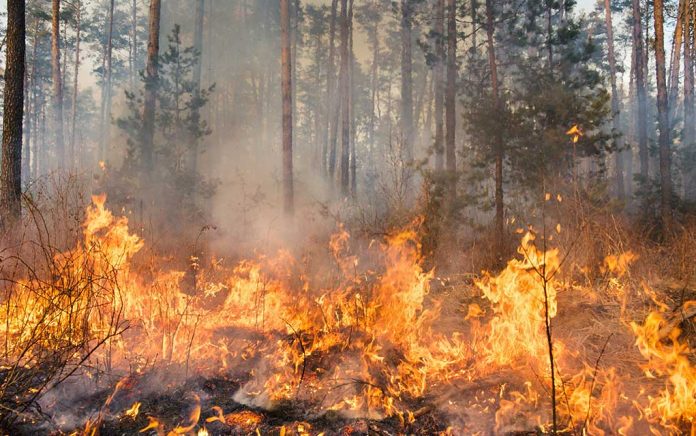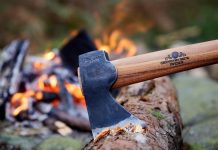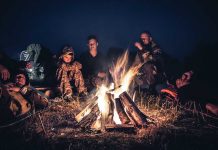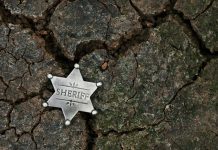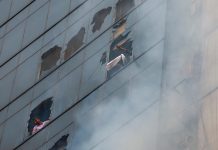(SurvivalDaily.com) – Wildfires are one of the more common natural disasters in the US. In 2018, there were over 58,000 fires that burned up more than 8.8 million acres. Most wildfires — approximately 85% — start as a result of humans. Unattended campfires, carelessly discarded cigarettes, arson and burning debris being the primary human activities that lead to wildfires.
Unfortunately, wildfires are more than just a nuisance; they can — and do — kill. Just one example, the Camp Fire of Paradise, California, was one such event in 2018 where 85 people lost their lives. If you’re caught in one, you need to know how to react if you want to maximize your survival chances.
Surviving At Home During a Wildfire
If you’re at home and get a warning of an approaching wildfire, follow the given advice. If you’re advised to evacuate, do it. These warnings aren’t given lightly and shouldn’t be ignored. If an evacuation warning goes out, that usually means emergency services aren’t confident they can stop the fire before it gets to you. If you stay and find yourself in trouble, there’s a good chance nobody will be able to come to rescue you, either. It’s natural to worry about your property, but staying put won’t protect it — it will just endanger your life and the lives of those who stay with you.
If you can’t evacuate for whatever reason, use the time you have to fireproof your home. Clear away anything combustible from around the house — and, if you have external propane tanks, remove combustible items from there, too. Have gas cans or gas grills? Move them as far from the house as possible. If there’s a woodpile against the wall, get rid of it — even toppling it a couple of feet away will reduce the risk.
Then, if you have a hose, soak the exterior of the house — including the roof — as thoroughly as you can. That cuts the risk of flying embers setting it alight. Keep working on fireproofing until the fire is almost on you; then get inside and stay there until the fire has passed. If the house does catch fire and you have to get out, head in the direction the fire came from, into ground that’s already been burned out. Don’t try to outrun the flames.
Surviving In a Vehicle
If you’re in your car and literally get caught inside a wildfire, stay in the car. Vehicles are actually safer than the active fire. The metal body won’t burn, and there’s reasonable insulation to help keep the heat out. Metal gas tanks almost never explode, either. You’re probably safer staying inside than trying to run on foot.
Before the fire engulfs your vehicle, close all windows and air vents. Cover your mouth and nose with a wet cloth if at all possible. Lie on the floor if you can — the air will, hopefully, stay somewhat cooler down there.
Surviving On Foot
Wildfires are very dangerous to a person on foot in the open; to survive, you’ll need to think and act fast. Use the time before the fire reaches you wisely. Don’t try to outrun the fire — you probably won’t make it. If you can move to the side of the flames, do that. Otherwise, look for areas that won’t burn.
If you can put a water obstacle like a river between you and the fire, do it. If you can’t, look for bodies of water you can shelter in. Stay low, just sticking your face up to breathe, and your chances are better even in a small lake.
In the absence of water, patches of rock are good shelter. So is bare earth. If there’s no fuel in an area, the fire won’t burn it — and if you’re in that area, it won’t burn you, either. If all else fails, look for a less intense area in the flames and try to dash through onto already burned ground. It won’t be pleasant — and it’s also extremely dangerous — but if that’s your only way out, take it.
Unfortunately, the main danger from a wildfire isn’t being burned. Inhaling superheated air, smoke and ash can cause lung damage long-term, but smoke inhalation can leave you unconscious in minutes — and that’s when the flames get you.
If you have water and a cloth with you, soak the cloth and tie it over your nose and mouth to keep the worst of the crud out of your lungs. Stay upwind where you can, and avoid the densest smoke. The longer you can keep breathing relatively fresh air, the longer you can keep actively evading the fire — and the more likely you are to survive.
At the risk of repeating myself, the best course of action is to evacuate before being warned or just after the warning comes in. Clear away the debris before evacuating and soak the house to give it the best chance, then get out, and keep you and yours safe.
~Copyright 2021, SurvivalDaily.com

